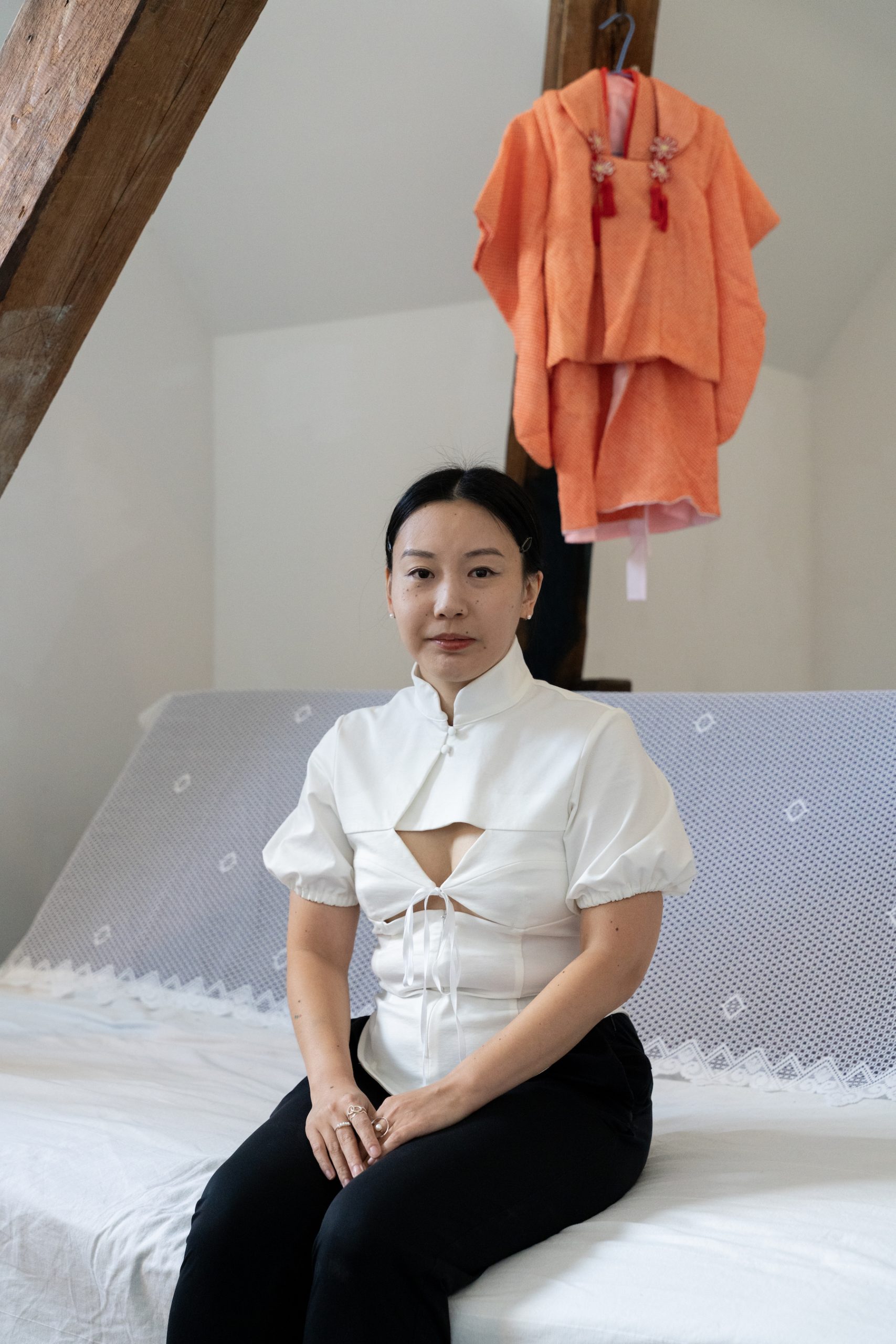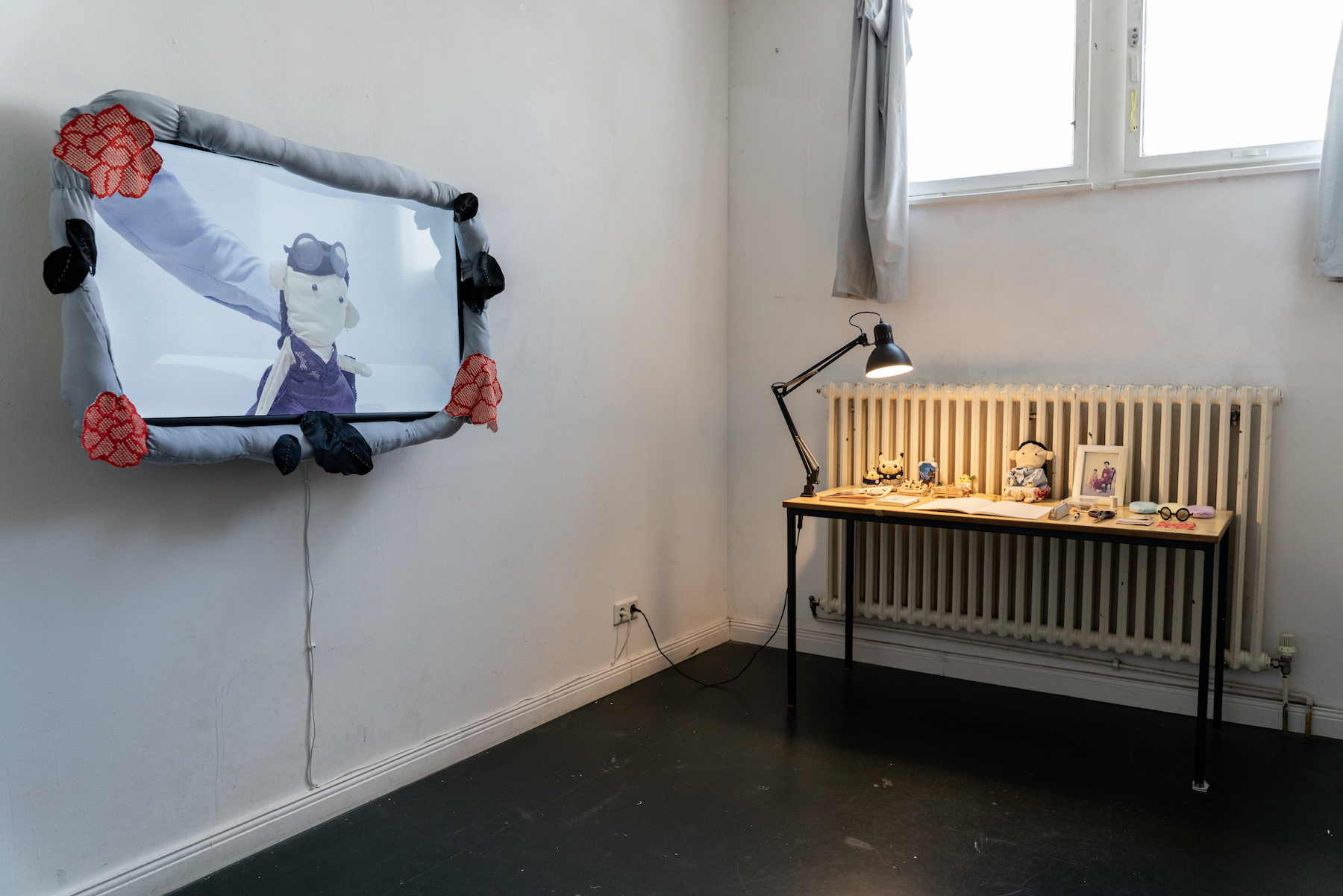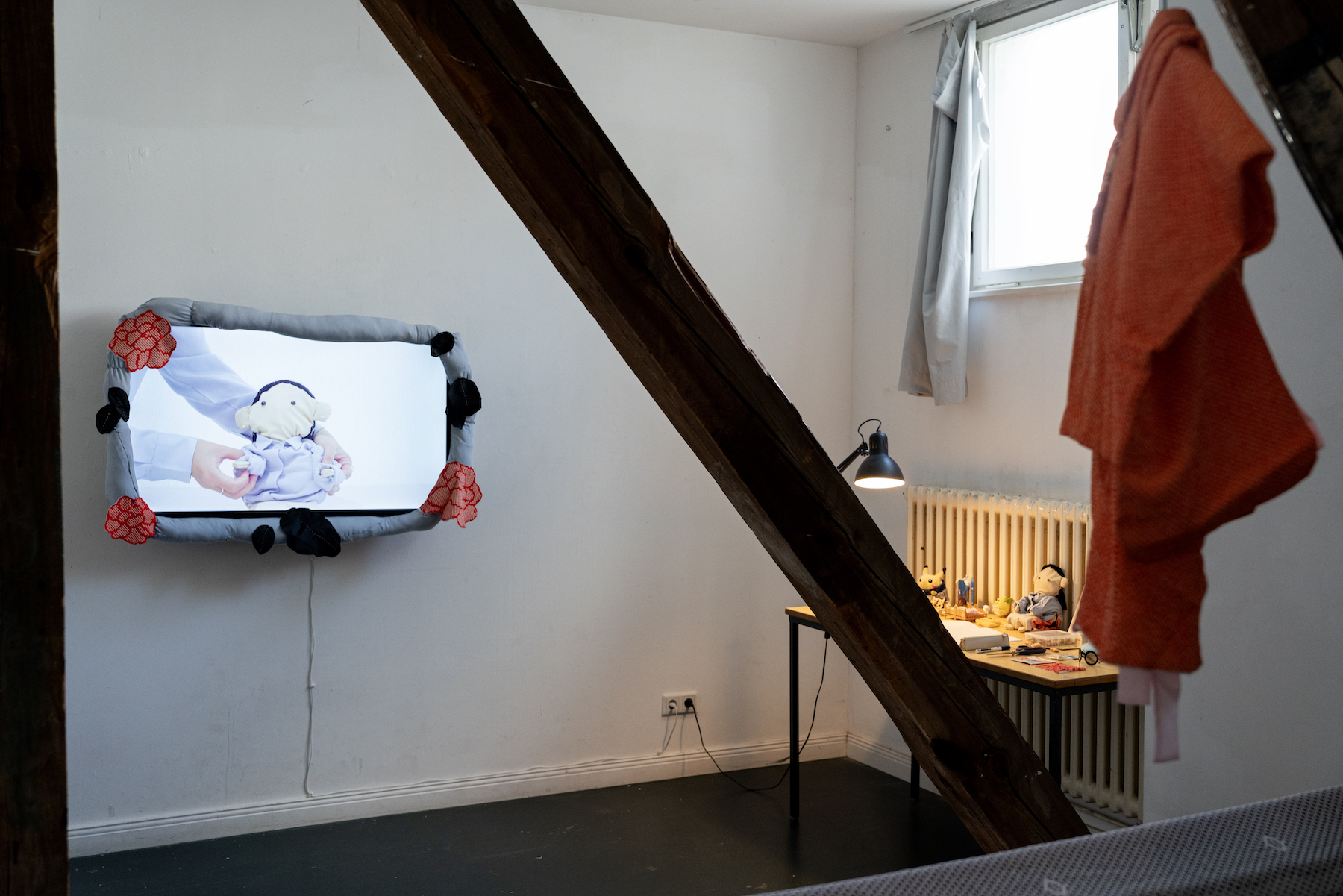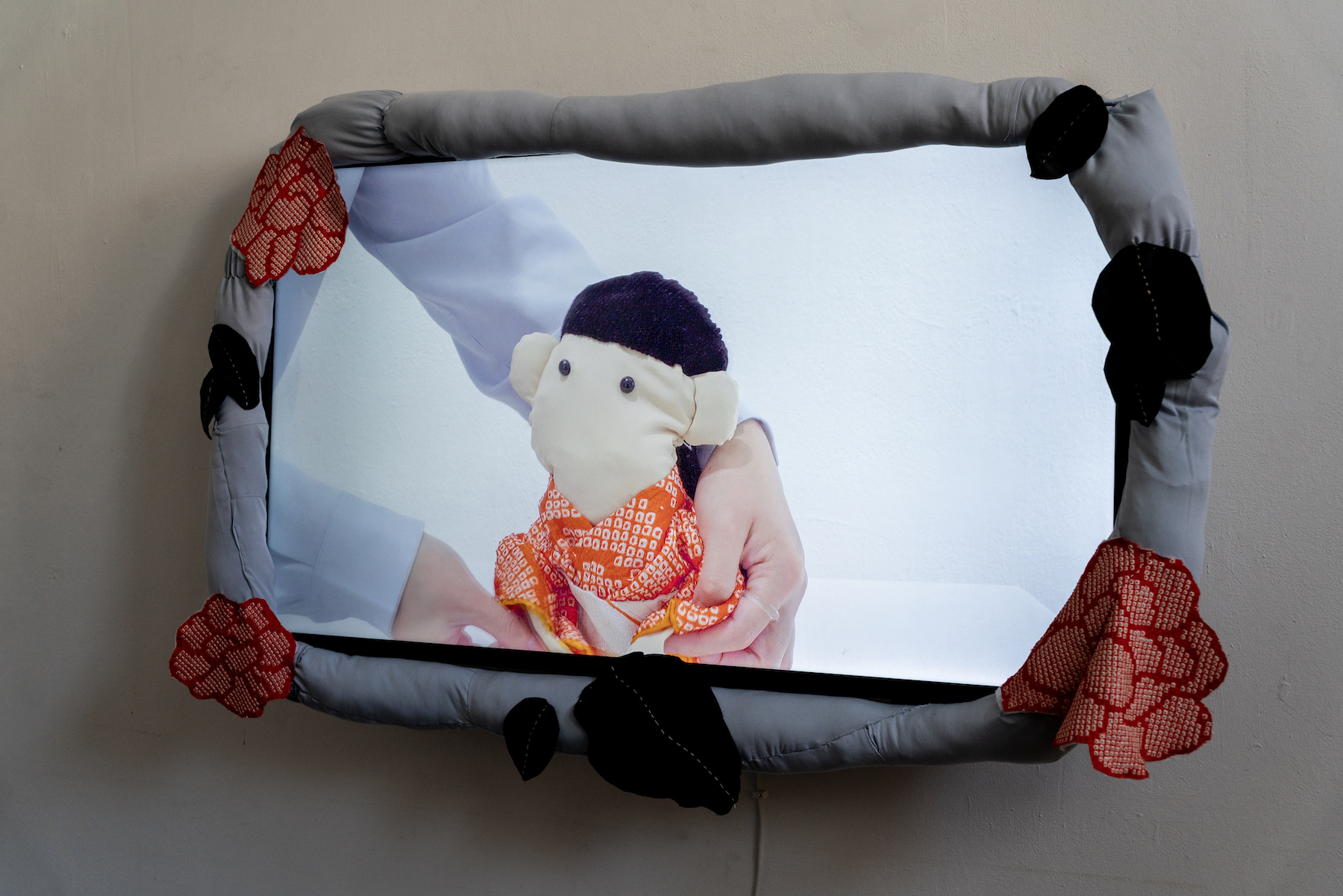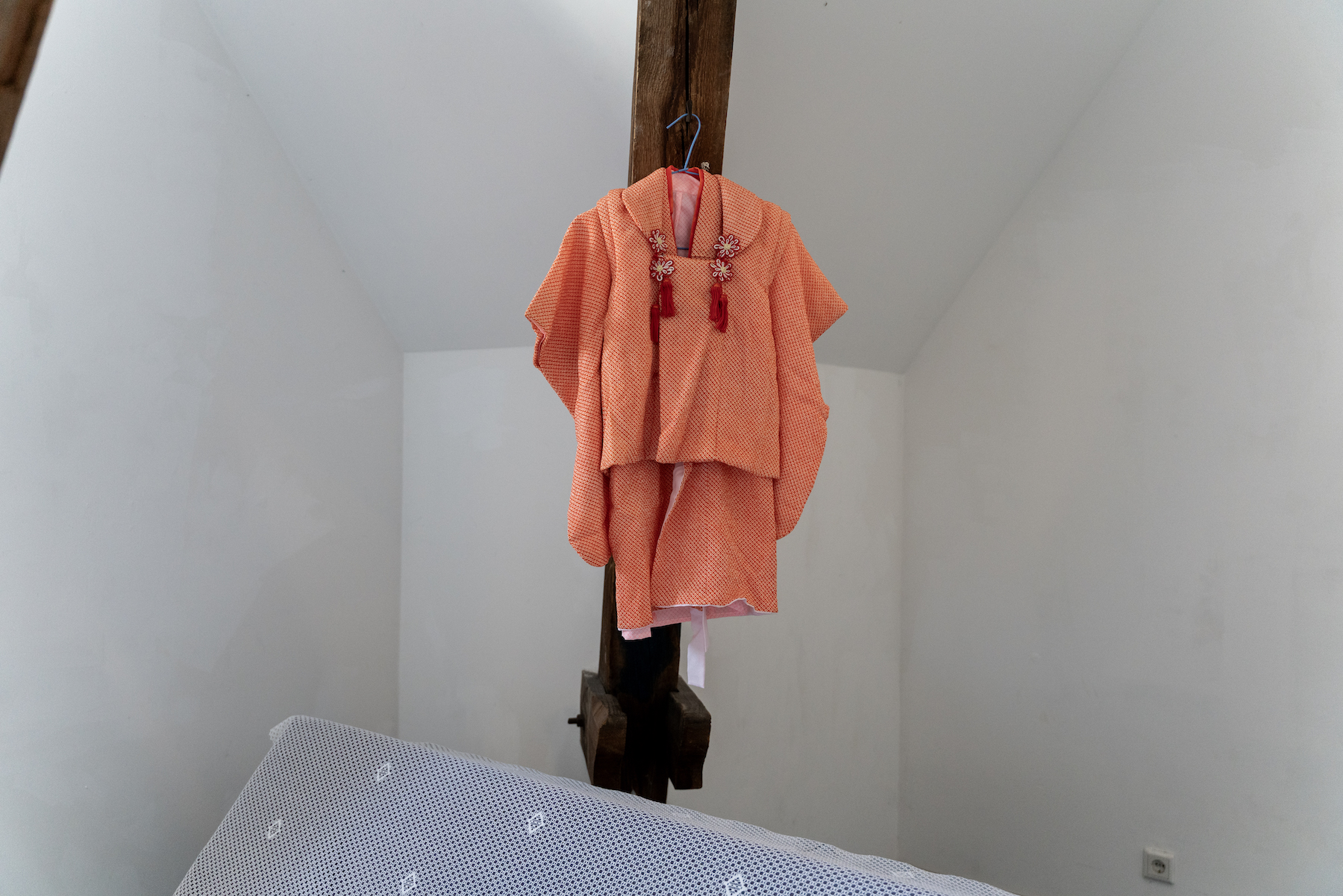Rieko Tsuji is a Japanese multi-disciplinary visual artist. Using the kimono as a material, Tsuji reflects on her own longing for foreign lands and the cultures that she carries with her while also questioning gender norms and roles.
Why do people yearn for distant cities and want to leave their familiar homes? This question is asked from both a general perspective and a personal one, informed by Tsuji's own family history. She feels that her own culture is identified as an inconvenient characteristic of living in a foreign land. In particular, she uses visuals that deliberately emphasize exoticism to comment on the submissive and mysterious image that is often expected of herself.
Lately she researches and expresses gender issues through creating works using crafts and video. Through traditionally feminine methods of handicrafts and sewing, as well as turning the works into cute visuals, Tsuji is attempting to defy the expectations of gender non- confirmity that are often directed at female artists who talk about queer culture and feminism. How can women be respected while remaining feminine?
During her residency, Rieko Tsuji expresses the relationship between mother and daughter and the changing social status of women by creating handicrafts using a kimono. This particular kimono has a special significance for her as it was worn at a coming-of-age ceremony by her mother after she gave up her dream of studying abroad.

